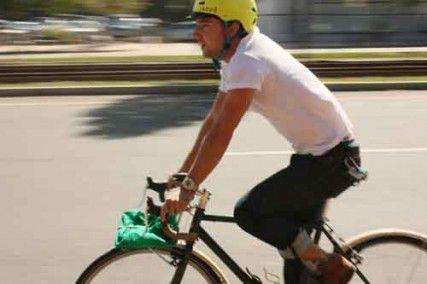Although many incidents pose a risk for bicyclists in Boston, legislation and other initiatives from MassBike aim to decrease the number of accidents and education bikers on safety.

“The city is fully engaged in bicycle safety,” said David Watson, executive director of MassBike. “The mayor deserves a lot of credit.”
MassBike, a coalition promoting bicycle riding, offers bike safety classes and will offer safety brochures in eight languages starting next week, Watson said.
In 2008, MassBike helped pass the Bicycle Safety Act, which made it illegal for a car to pass a bike and make an immediate right turn. The act also outlawed opening car doors in the bike lane.
The Bicycle Safety Act took four legislative sessions and a total of eight years to pass, according to the MassBike website.
Watson said the laws could be more enforced, but he recognizes the police have limited resources and other priorities.
Scott Paré, deputy director of public safety with the Boston University Police Department, said bike collisions, whether they involved pedestrians or cars, have increased recently.
“It seems lately [there are] two to three [accidents] a week, and that’s a lot,” Paré said.
Paré said other frequent incidents include car drivers who open doors that bikers run into, bikers running red lights and bikers riding on the sidewalks.
Commonwealth Avenue and Massachusetts Avenue have the highest rate of accidents, according to three surveys published by Boston Bikes in 2010.
In 2011 the coalition pushed for the Vulnerable Road Users bill, which was intended to further bicycle safety, but was killed in June by the Legislature.
“[The bill] would require both education and community service for any motorist who is convicted of killing or seriously injuring a vulnerable user,” Watson said.
Boston EMS responded to about 580 bicycle accidents in 2011, according to statistics from Boston Bikes.
Watson said the New Balance Hubway system is also a positive sign, and the bikes are safer than privately owned bikes.
“Hubway riders have a much lower accident rate than other cyclists,” said Jessica Robertson, Transportation Coordinator for the Metropolitan Area Planning Council.
There have been no major accidents since Hubway was founded, Robertson said.
She said there is no way to enforce riders to call in accidents, but if a major accident happened, Hubway would receive an EMS report.
“Every single Hubway bike gets checked by a mechanic once a month,” Robertson said.
The bikes have automatic lights, and are a bit slower than other bikes, but another reason for the low accident rates is that Hubway users take the bikes for transportation, and are not “daredevils,” Robertson said.
Boston Bikes, a city hall initiative that started in 2007, has seen the number of bike riders double since it was founded, according to the City of Boston’s website.
Paré said discipline is taken seriously, and if students repeat offenses or make a serious violation, they will be ticketed.
He also said he emphasizes the importance of good safety locks, encouraging U-locks, and said students should also register their bikes with the Parking Registration to prevent bicycle theft.
Information such as the model of the bike is recorded when bikes are registered, which gives the police a better chance to locate the stolen bike, he said.
Paré said the Boston Bike Safety Committee prefers to educate students on safety.
“They try to educate as much as possible,” he said. “Some of those violations can be fined, like ticketing, but [the BUPD prefers] not to do that, we prefer to educate students.”


















































































































